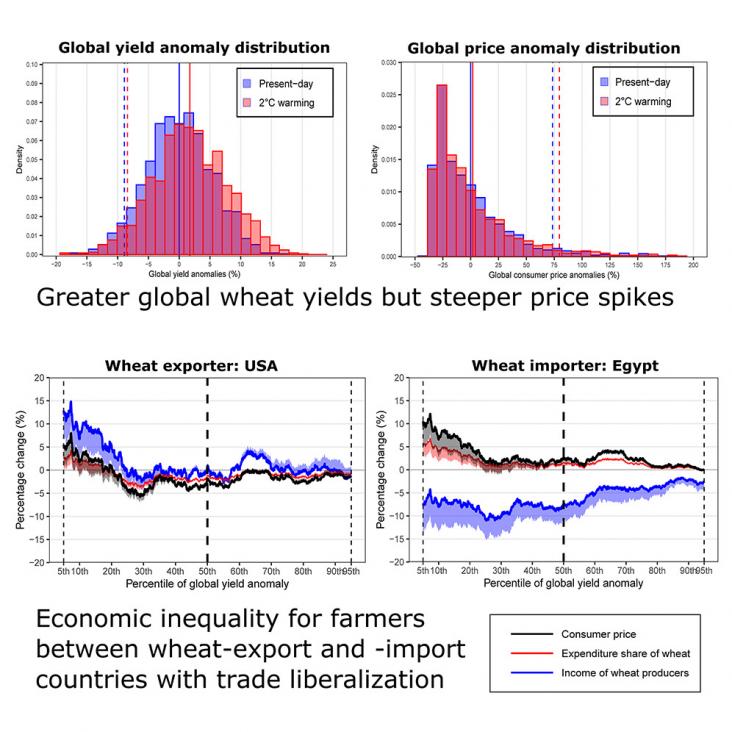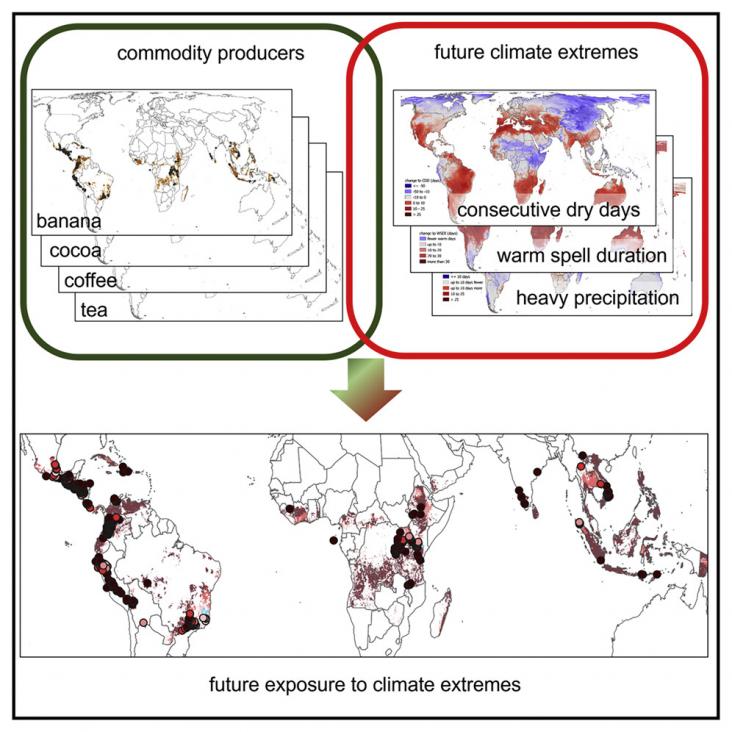Elsevier,
New Aspects of Meat Quality (Second Edition): From Genes to Ethics, Woodhead Publishing Series in Food Science, Technology and Nutrition, 2022, Pages 533-557
Insects are becoming an increasingly attractive option as a sustainable food source, both for humans and animals. This chapter covers this growing area of interest in the research community as well as the challenges of farming and harvesting insects for food.

The paper shows that future global wheat prices will exhibit steeper spikes at 2°C global warming despite a 1.7% increase in production, increasing inequalities.

Analysis of how drought, heat stress, and heavy precipitation could affect over 1.6 million producers within the Fairtrade supply chain by 2050.
An Article in support of SDGs 2, and 3, assessing the impact of incorporating dietary assessment in 10 year absolute risk charts for atherosclerotic cardiovascular disease.
Climate adaptation and mitigation strategies aim at strengthening existing food systems and infrastructure of agro-ecosystems, to make them more resilient to the effects of climate-led adversities.
This Article supports SDGs 3 and 13 by showing that plant-based beef alternatives could reduce the carbon footprint of the US food system, but highlights that reductions in other envirnmental dimensions are dependent on repurposing of resources.
Partner content
World Bank
These dashboards present data from the World Development Indicators (WDI) that help to monitor the Sustainable Development Goals (SDGs).
The objective of this paper was to upport the development of an integrated water, sanitation, and hygiene (WASH) and nutrition, social, and behavior change strategy aimed at reducing stunting, formative research was conducted in 2 program sites in western Kenya.
Concerns over the impact of global meat production and consumption patterns are leading to increasing interest in alternative sources of protein.
The Growing Resilience action-research project as detailed in this paper, aims to help support the health and food sovereignty of Wind River Indian Reservation (WRIR) communities by providing families with information for monitoring their individual health and by supporting families in improving their health by growing home food gardens.
